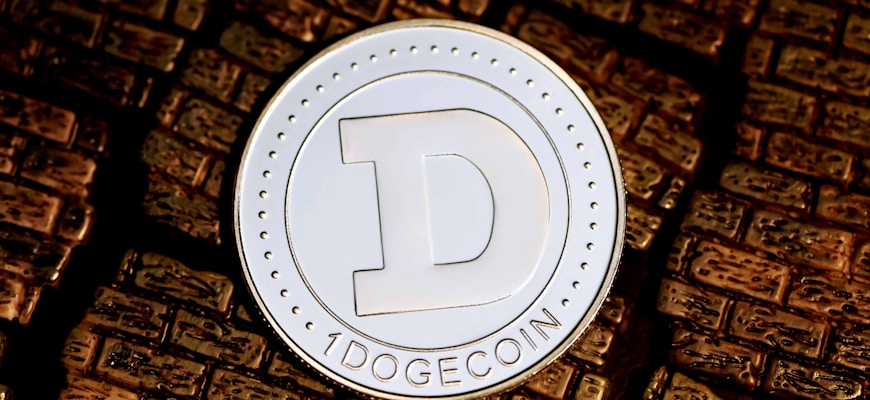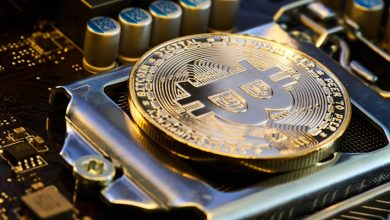The Basics of DeFi: A Guide to Decentralized Finance

- Understanding the concept of decentralized finance
- The benefits of using DeFi platforms
- Key features of decentralized finance
- How DeFi is changing the traditional financial landscape
- Risks and challenges associated with DeFi
- Exploring the future potential of decentralized finance
Understanding the concept of decentralized finance
DeFi, short for decentralized finance, refers to a movement that aims to create an open and accessible financial system without the need for traditional intermediaries such as banks or brokers. In DeFi, financial services are built on decentralized networks like blockchain, allowing users to transact directly with each other without relying on a central authority.
One of the key concepts of DeFi is the use of smart contracts, which are self-executing contracts with the terms of the agreement directly written into code. These smart contracts automate transactions, removing the need for intermediaries and reducing the risk of fraud. By utilizing smart contracts, DeFi platforms can offer a wide range of financial services, including lending, borrowing, trading, and more.
Decentralized finance also enables greater financial inclusion by providing access to financial services for individuals who may not have access to traditional banking systems. With DeFi, anyone with an internet connection can participate in the global financial system and access a wide range of financial products and services. This accessibility is particularly important in regions where traditional banking infrastructure is lacking or unreliable.
Overall, DeFi represents a significant shift in the way we think about and interact with finance. By leveraging decentralized networks and smart contracts, DeFi offers a more open, transparent, and inclusive financial system that empowers individuals to take control of their financial future. As the DeFi space continues to evolve and grow, it has the potential to revolutionize the traditional financial sector and create new opportunities for innovation and financial freedom.
The benefits of using DeFi platforms
Utilizing DeFi platforms offers a wide range of advantages for users looking to participate in decentralized finance. One of the key benefits is the high level of security that DeFi platforms provide. By leveraging blockchain technology, DeFi platforms ensure that transactions are secure and transparent, reducing the risk of fraud or hacking.
Another major benefit of using DeFi platforms is the ability to access financial services without the need for intermediaries. This means that users can interact directly with smart contracts on the blockchain, eliminating the need for traditional financial institutions such as banks or brokers. This not only reduces costs but also increases the speed and efficiency of transactions.
Furthermore, DeFi platforms offer users greater control over their assets. With DeFi, users hold the private keys to their wallets, giving them full ownership and control over their funds. This level of autonomy is not possible with traditional financial systems, where assets are typically held by third parties.
In addition to security, accessibility, and control, DeFi platforms also provide users with the opportunity to earn passive income through various investment opportunities. By participating in liquidity pools, staking, or yield farming, users can earn rewards in the form of interest or fees, helping them grow their assets over time.
Key features of decentralized finance
Decentralized finance, or DeFi, offers a range of key features that set it apart from traditional financial systems. Some of the most prominent aspects of DeFi include:
- 1. **Transparency:** One of the defining characteristics of DeFi is its transparency. All transactions and data are recorded on the blockchain, making it easy for anyone to verify and audit.
- 2. **Accessibility:** DeFi platforms are open to anyone with an internet connection, allowing individuals from all over the world to participate in financial activities without the need for intermediaries.
- 3. **Interoperability:** DeFi protocols are designed to be interoperable, meaning that different platforms can seamlessly interact with each other, creating a more connected financial ecosystem.
- 4. **Non-custodial:** In DeFi, users have full control over their assets at all times. There is no need to trust a third party to hold or manage funds, reducing the risk of theft or fraud.
- 5. **Liquidity:** DeFi platforms often rely on liquidity pools to facilitate trading and lending. This provides users with easy access to funds and ensures that transactions can be executed quickly.
These key features make DeFi an innovative and disruptive force in the world of finance, offering new opportunities for individuals to manage their assets and participate in financial markets in a decentralized and secure manner.
How DeFi is changing the traditional financial landscape
Decentralized Finance (DeFi) is revolutionizing the traditional financial landscape by offering a more open, transparent, and accessible system for financial transactions.
One of the key ways DeFi is changing the traditional financial landscape is by eliminating the need for intermediaries such as banks or financial institutions. Instead, transactions are conducted directly between users through smart contracts on blockchain platforms.
DeFi also allows for greater financial inclusion, as anyone with an internet connection can participate in various financial activities, such as lending, borrowing, trading, and investing.
Furthermore, DeFi provides users with more control over their assets, as they are not held by a centralized entity but rather by the users themselves. This reduces the risk of censorship or seizure of assets.
Overall, DeFi is democratizing finance and providing new opportunities for individuals to interact with the financial system in a more efficient and secure manner.
Risks and challenges associated with DeFi
When engaging with DeFi, it is important to be aware of the risks and challenges associated with this emerging sector. While DeFi offers exciting opportunities for decentralized financial services, there are also potential pitfalls that users should be mindful of.
- Smart contract risk: DeFi platforms are built on smart contracts, which are self-executing contracts with the terms of the agreement directly written into code. While this provides transparency and eliminates the need for intermediaries, smart contracts are also vulnerable to bugs and security vulnerabilities.
- Market volatility: DeFi projects are often subject to market fluctuations, which can impact the value of assets held within these platforms. Users should be prepared for price volatility and potential losses.
- Lack of regulation: DeFi operates outside of traditional financial systems, which means that there is limited regulatory oversight. This can expose users to risks such as fraud, scams, and market manipulation.
- Impermanent loss: Liquidity providers in DeFi protocols may experience impermanent loss, which occurs when the value of their assets changes relative to holding them in a traditional wallet. This can result in reduced returns or even losses.
It is crucial for users to conduct thorough research, understand the risks involved, and only invest what they can afford to lose when participating in DeFi. By staying informed and cautious, individuals can navigate the challenges of decentralized finance more effectively.
Exploring the future potential of decentralized finance
The future potential of decentralized finance (DeFi) is vast and promising. As blockchain technology continues to evolve, DeFi has the opportunity to revolutionize traditional financial systems by offering a more open, transparent, and accessible way to manage assets and execute financial transactions. With DeFi, individuals can participate in lending, borrowing, trading, and other financial activities without the need for intermediaries like banks or brokers.
One of the key advantages of DeFi is its ability to provide financial services to individuals who may not have access to traditional banking systems. This can help promote financial inclusion and empower people in underserved communities to take control of their financial futures. Additionally, DeFi can offer lower fees, faster transaction times, and greater security compared to traditional financial systems.
As the DeFi ecosystem continues to grow, we can expect to see a wide range of innovative applications and use cases emerge. These could include decentralized exchanges, tokenized assets, automated lending protocols, and more. By leveraging smart contracts and blockchain technology, DeFi platforms have the potential to streamline processes, reduce costs, and increase efficiency in the financial sector.
Overall, the future of decentralized finance looks bright, with the potential to disrupt and transform the way we think about and interact with money. As more people become aware of the benefits of DeFi and start to adopt these technologies, we can expect to see even greater innovation and growth in the space. It’s an exciting time to be a part of the DeFi revolution, and the possibilities for the future are truly endless.



